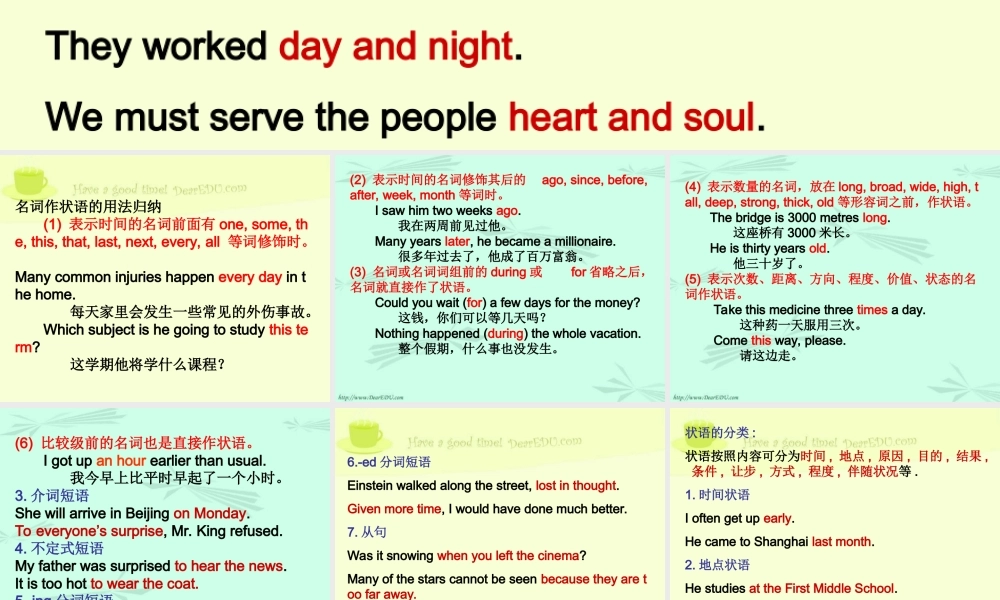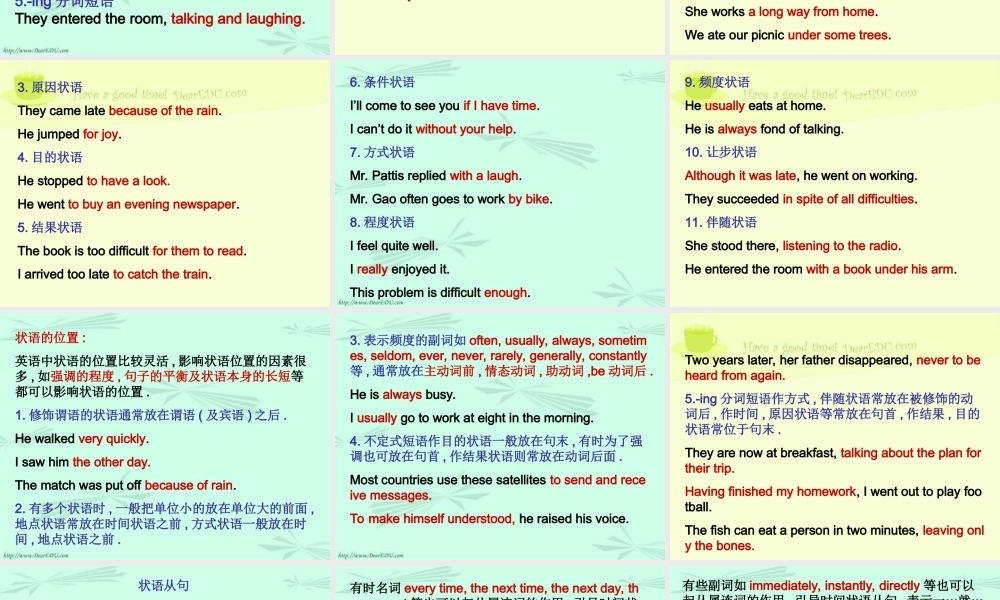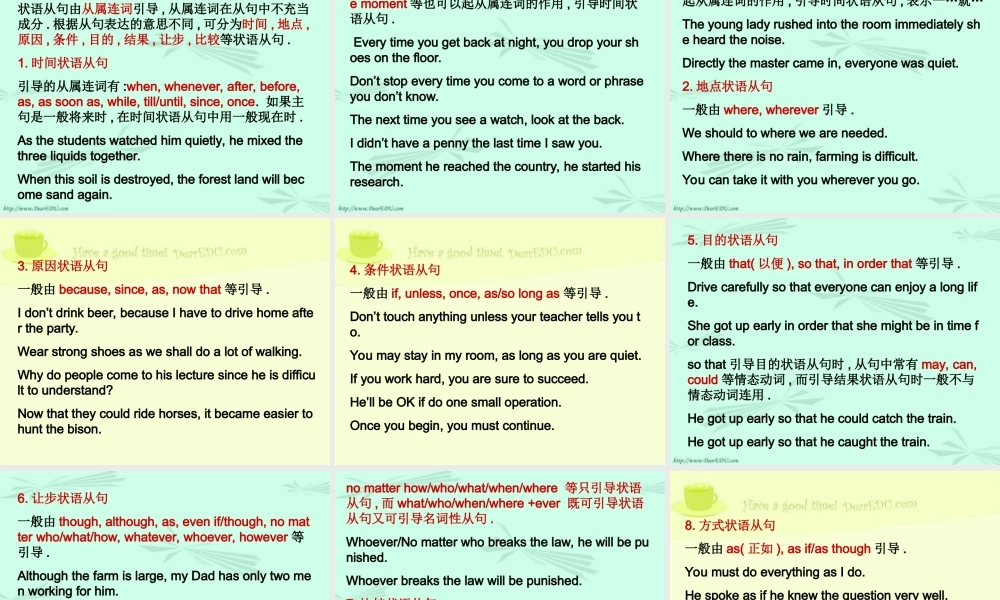Adverbial状语是用来修饰动词 , 形容词 , 副词或整个句子的句子成分 . 充当状语的一般为副词 ( 词组 ), 名词 ( 词组 ), 介词短语 , 不定式短语 ,-ed 分词短语 ,-ing 分词短语 , 从句等 .1. 副词词组We like this picture very much.The doctor looked over Mrs. Brown very carefully.2. 名词词组They worked day and night.We must serve the people heart and soul.名词作状语的用法归纳 (1) 表示时间的名词前面有 one, some, the, this, that, last, next, every, all 等词修饰时。 Many common injuries happen every day in the home. 每天家里会发生一些常见的外伤事故。 Which subject is he going to study this term? 这学期他将学什么课程? (2) 表示时间的名词修饰其后的 ago, since, before, after, week, month 等词时。 I saw him two weeks ago. 我在两周前见过他。 Many years later, he became a millionaire. 很多年过去了,他成了百万富翁。(3) 名词或名词词组前的 during 或 for 省略之后,名词就直接作了状语。 Could you wait (for) a few days for the money? 这钱,你们可以等几天吗? Nothing happened (during) the whole vacation. 整个假期,什么事也没发生。(4) 表示数量的名词,放在 long, broad, wide, high, tall, deep, strong, thick, old 等形容词之前,作状语。 The bridge is 3000 metres long. 这座桥有 3000 米长。 He is thirty years old. 他三十岁了。 (5) 表示次数、距离、方向、程度、价值、状态的名词作状语。 Take this medicine three times a day. 这种药一天服用三次。 Come this way, please. 请这边走。 (6) 比较级前的名词也是直接作状语。 I got up an hour earlier than usual. 我今早上比平时早起了一个小时。3. 介词短语She will arrive in Beijing on Monday.To everyone’s surprise, Mr. King refused.4. 不定式短语My father was surprised to hear the news.It is too hot to wear the coat.5.-ing 分词短语They entered the room, talking and laughing.6.-ed 分词短语Einstein walked along the street, lost in thought.Given more time, ...




